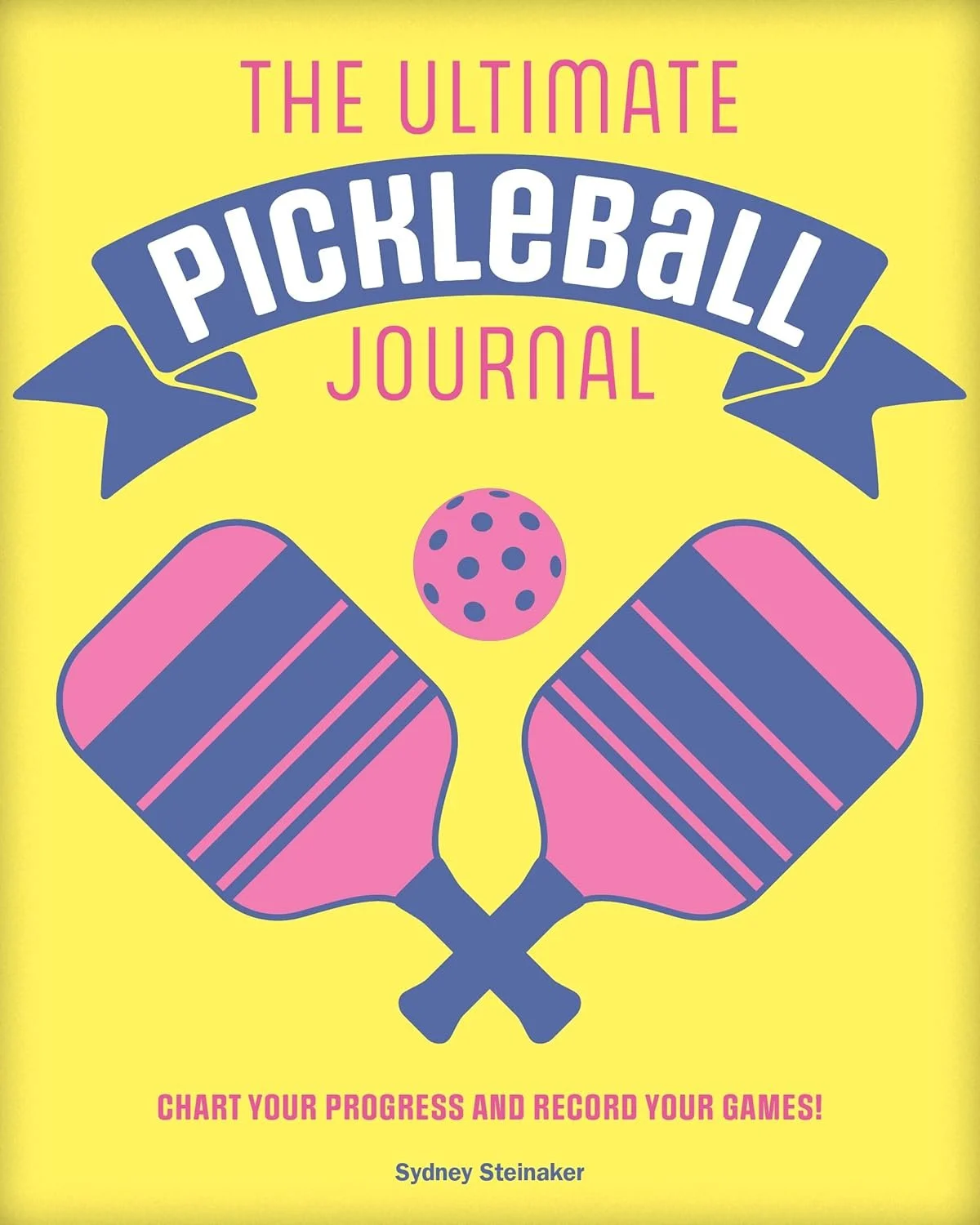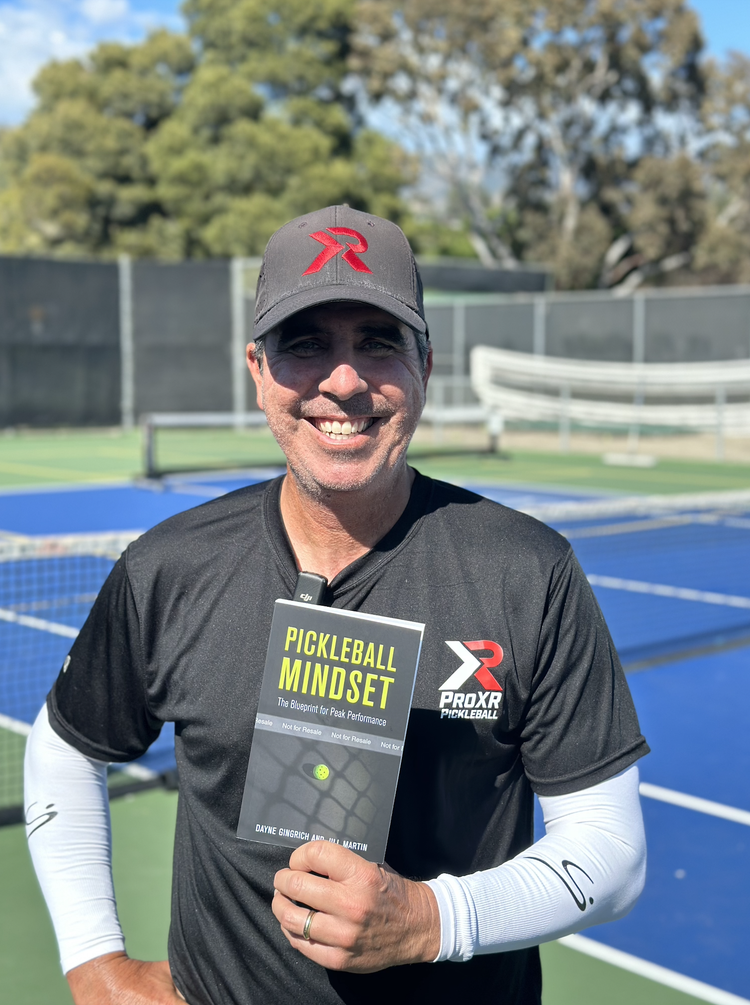Tried It, Loved It: Mental Game Tools for Pickleball Players (That Aren’t Apps)
Ask any rec or tournament player and they’ll tell you: this game isn’t just physical. What’s happening between points — in your head — often matters most. And while everyone talks about apps or “mental toughness hacks,” the truth is players have found plenty of tools that work without another download. These are the journals, routines, breathing tricks, digital aids, and lifestyle habits that real pickleball players swear by.
Journals: Your Off-Court Coach
A simple notebook can become one of the best training partners you’ll ever have. Writing down your focus goals before play and reflecting after each session can be a game-changer.
Pre-game: jot two or three intentions (e.g., “watch the ball,” “go for smart drops”).
Post-game: record what went well, what frustrated you, and what you’ll try next time.
Some use specialized performance journals like the The Ultimate Pickleball Journal with built-in prompts; others stick with a blank notebook. Either way, the act of writing builds awareness, tracks improvement, and doubles as your personal playbook for mental growth.
The Routine Lifecycle: Pre and Post-Game
Think of routines as the framework that keeps your head steady. They don’t just happen before a match — the best players lean on consistent habits before and after play.
Pre-Game Routines
A good start sets the tone. For some, that’s a hype playlist on the drive over. For others, it’s a specific stretch sequence, mini-drill, or even a short meditation in the car before walking onto the court. The routine itself becomes the signal: it’s go time. If you’re looking for something more detailed, we’ve already covered the value of pre-serve routines — a mental tool that deserves its own spotlight.
Post-Game Routines
Don’t skip the cool-down. Light stretching, jotting notes in a journal, or even replaying highlights with a partner helps process both the physical and mental sides of your game. It also prevents that post-match spiral where all you remember are the mistakes.
Recovery & Lifestyle: The Overlooked Mental Edge
What you do off the court shows up on the court. Players who prioritize recovery often feel sharper, calmer, and less reactive during play.
Get enough sleep: One solid night can mean steadier decision-making and faster reaction time.
Stay fueled: A steady energy level = fewer mental crashes mid-match.
Stretch it out: Not just for flexibility — both improve body awareness and help your mind stay tuned in.
Even non-physical recovery counts. Quiet time, journaling, or simply stepping away from pickleball for a day can clear mental clutter.
Digital Aids (That Aren’t Apps)
Dayne Gingrich with his book, Pickleball Mindset
Not every tool has to be physical. Some of the best mental boosts come from free digital resources players weave into their prep:
Guided Audio: YouTube and Spotify are full of short meditation or visualization tracks designed for athletes. Plug in during your warm-up or the night before a match.
Podcasts & Videos: Coaches and pros share tips on managing nerves, handling pressure, and staying locked in. (Dayne Gingrich’s mindset videos are a fan favorite.)
Printable Checklists: Tournament prep sheets or mental reset reminders you can tuck into your bag. A one-pager with your own focus cues can be just as powerful as a coach’s pep talk.
Playlists: Curating your own pre-match hype playlist counts here too — music is one of the easiest digital tools for getting in the right headspace.
They’re easy, low-commitment tools you can pull into your prep whenever you need a lift.
Community & Confidence Builders
Who you play with shapes how you play. The right partners and groups can be just as important for your mindset as any drill.
Partner Support: Having doubles partners with a “next point” mindset keeps you both from spiraling.
Group Play: Ladder leagues or rec groups give you challenges without the pressure of tournament play.Highlight Reels: Some players film their games, then rewatch their best rallies as confidence fuel. Seeing your own wins helps train your brain to expect them again.
Confidence is rarely built in isolation. Surround yourself with the right partners and environments, and your mental game will strengthen naturally.
Off-Court Brain Training
Your mental tools don’t have to stop when you leave the court. Players have found crossover benefits in:
Logic puzzles or strategy games: Train patience and focus.
Mindfulness practices: Even 5 minutes of meditation sharpens awareness.
Cross-training: Sports like yoga, tai chi, or even table tennis teach body control and concentration that translate directly to pickleball.
These habits build mental endurance — so when the game gets tight, your brain doesn’t tap out before your body does.
Keep Your Head in the Game
Strengthening your mental game doesn’t require an app, a sports psychologist, or anything fancy. It comes from routines you can trust, breathing and visualization tools you can lean on, recovery habits that clear your head, digital aids that fit your prep, and community support that keeps you steady.
Start small: add one new routine, try one breathing trick, or test out a podcast before your next match. Over time, these tools stack up — and suddenly, the pressure moments don’t feel so heavy.
A steady mind makes the rest of your game shine.




